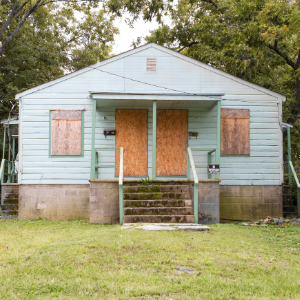
It can be challenging to sell a house in Dallas when there’s a loss to be addressed. However, you need to determine how to approach the issue. Dallas’s ever-changing economy can impact the value of homes in an area. This guide helps you explore available options if you owe more on your mortgage than your home is worth. The guide offers financial options as well as alternative selling approaches to ease the strain. This is perfect for individuals relocating as well as those looking to downsize. Understanding the situation will enable you to make sound decisions in desperate times.
Key Highlights
- Explore strategies to minimize the impact of loss, such as short sales and deeds instead of foreclosure.
- Consult estate agents for tailored market guidance and expert negotiation skills.
- Evaluate potential tax implications, focusing on specific deductibility conditions in Texas.
- Analyze economic and property condition factors influencing Dallas home sales.
- Engage financial and legal advisors to optimize property sale strategies and ensure optimal outcomes.
Understanding Selling at a Loss
Although selling a home for a loss in Dallas, TX, may seem complex, understanding the reasons behind the sale, along with its overall financial impact, helps homeowners in the area overcome such complexity. Several issues can arise from selling a home for less than its worth, which can impact both your financial well-being and your mortgage situation. In a city as competitive as Dallas, understanding the impact of selling a home for less, along with the subsequent financial losses and mortgage strategy implications, becomes imperative. Selling a home as-is, or having to accept a lower price than you would by selling the home quickly in its current condition, makes it essential to understand the complex sales strategy to minimize such losses on homes.
Reasons Your Home May Be Sold at a Loss

In Dallas, selling your home for less than its current market value relies on specific market conditions as well as property factors. Nearby foreclosures can drive down the pricing of homes for sale, which economic changes can overlook. In other situations, homeowners may find market conditions to be underwhelming, where selling for less than a property’s mortgage balance is a challenge. This can be a pretty troublesome market loss.
Selling homes that are neglected or falling apart tends to attract lower-priced offers; selling as-is means accepting a lower offer. Deterioration wear, such as roof loss, damage to the foundations, or loss of external elements from the home, can considerably lower the purchase price, affecting buyer perception and also reducing the sale price of the house.
Property scarcity, defined as the potential property available to a buyer, shifts with depreciation as an improvement. Factors such as a decline in buyer demand, rising interest rates, or an increase in crime, including school crime, can significantly lower the selling price. Additionally, interest rates in the market can considerably lower offers and interest from buyers, which can reduce the property’s selling price.
Selling homes is a process that can be triggered by various dynamics, resulting in a lossless outcome. Job recessions, accompanied by relocation, and pressure put on due to or overdue mortgages, can accelerate the loss and decrease the market price.
For sellers who want fast, dependable offers without repairs or lengthy market exposure, working with companies like House Buying Girls can provide a straightforward solution. They buy houses directly for cash in Texas, helping homeowners avoid further financial strain, accelerate their timeline, and minimize losses by eliminating agent fees, delays, and repair costs.
Assessing the Impact of a Loss on Your Finances
Selling a house at a loss affects more than just the sale price. It can also affect your overall financial position. The difference between the mortgage amount on the house and the sale price determines whether there is an underwater mortgage. This type of mortgage may require the homeowner to pay the difference to avoid losing the property. This is a significant burden on savings, not to mention the increase in overall debt and loss of financial freedom.
For Texas, the financial burden of loss may even affect future loans. Lenders in the future may associate losses with a high risk factor, which could result in being denied a loan or being required to pay a higher interest rate. Takeoffs, losses, and their effects should certainly be analyzed to plan the future effectively.
In this case, taxes need to be thought of. Losses on primary residences are generally not tax-deductible, which makes the overall financial loss on a tax return irrefutable. Even tax forgiveness and debt relief can affect taxes; however, in this case, rental loss requires the assistance of a professional.
With the loss of home sales potentially derailing strategic financial planning, Dallas homeowners are better off implementing some form of tactical recovery. Understanding how Dallas homeowners can recover financially after a home sale requires establishing a workable budget, rebuilding savings in line with market forecasts, and proactive market intervention. Dallas homeowners can seek guidance from financial planning specialists and real estate counselors for credit management, future real estate investment activities, and financial planning cohesion.
Dallas homeowners have the knowledge and confidence to manage a home loss financially, as it can impact a person’s credit standing, borrowing potential, taxation, and investment projections. This is especially important for those considering Selling Home with Reverse Mortgage in Fort Worth, TX, where understanding the financial implications in advance can help prevent costly missteps and delays during the sale process.
| Factor | Impact on Sale Price | Financial Consequence | Mitigation Strategy |
| Market Downturn | Decreases due to reduced buyer demand | Potential loss of equity | Wait for market recovery or improve property to increase value |
| Over-improvement | Price might not cover investment costs | Negative return on investment | Limit renovations to market standards |
| Urgent Sale | Leads to accepting low offers | Reduced sale proceeds | Allow more time for selling or improve listing attractions |
| Location Issues | Detracts buyers, lowering offers | Sale may not cover outstanding mortgage | Highlight strengths or offer incentives |
This table provides a structured overview of the factors influencing property sale losses and strategies to manage the financial implications effectively.
Exploring Alternative Solutions
There are always solutions available to minimize the financial losses associated with selling a home in Dallas, TX, such as deeds instead of foreclosure and short sales. These solutions, which enable homeowners to manage the pressures associated with selling, loss, and mortgage complications, provide support during times of difficulty. These alternatives allow property owners to gain a deeper understanding of their financial profile and make more informed decisions about their home and mortgage, particularly in situations where selling the property and the Texas real estate market are performing poorly.
Short Sale: When You Owe More Than Your Home is Worth

A short sale becomes an option for Dallas homeowners when their mortgage balance exceeds the current market value of their property. A short sale allows lenders to accept a sale price for the property that is less than the required mortgage balance, which helps homeowners avoid foreclosures that could cause greater financial and credit problems. For those suffering from economic issues, this method is much more preferable as it is controlled and doesn’t automatically lead to stress.
Homeowners must prove financial difficulties, such as job loss, medical issues, or the general economic downturn, which has led to falling housing prices in Texas, to qualify for a short sale. If and when the hardship is proved, the lenders are then to analyze the circumstances to see whether it is in their interest to accept the reduced payoff for the loan.
It is almost systematic in the way the financial package is organized — which includes mortgage statements and proof of income, as well as tax returns and even a hardship letter — and then it is all submitted. Many Texas homeowners who struggle with the slow and paperwork-heavy process benefit from using short sale solutions. They help with reviewing documents and assist in negotiations with lenders to facilitate faster communication and reduce the chances of misunderstanding.
When each account possesses its own unique influence, however, each account, for instance, impacts the overall well-being of its owners. For example, the Dallas account balance impacts the account’s other market values. That balance is the area where the owners can take out loans.
Currently, the market is thriving, so the owners have numerous other opportunities. The owners can take out loans, sell durable assets, and auction the account’s valuables as alternatives are offered. However, in the unfortunate scenario where account values are in a downward plateau, the owners have the option to take out a loan as a last resort. Each of these can also help owners in many other ways, not only in sustaining value levels for the account.
For sellers who need a faster, simpler alternative, without months of paperwork or lender negotiations, House Buying Girls offers a direct cash sale solution. They purchase Dallas homes in any condition — even underwater or facing financial hardship — helping homeowners avoid the extended approval timelines associated with short sales. This can provide a quick exit without the uncertainty of lender decisions.
Ultimately, deciding on a short sale means weighing all options, understanding lender requirements, and seeking expert guidance. With the right strategy and support, Dallas homeowners can minimize financial damage and move forward with greater stability.
Deed instead of Foreclosure: An Option to Consider
For Dallas homeowners who have found an alternative to foreclosure, a Deed in Lieu of Foreclosure could save a lot of time and effort if there is equity in the home. You will be giving the lending company the home, free of charge. In return, the company will eliminate your mortgage balance. This choice, although not ideal in every scenario, will save legal time and costs, as well as significantly reduce the likelihood of long-term credit damage associated with foreclosure.
Texan homeowners who wish to pursue this option must remain in contact with the lender. Typically, Deed in Lieu processes are available when a property is on the verge of foreclosure and all attempts, such as refinancing, selling, or modifying the loan, have been unsuccessful. It is customary with many lenders that the property must be listed for a minimum duration before the loan is approved as a safeguard to ensure that traditional selling routes have been exhausted.
You should also understand the boundaries to an extent. Some lenders may still attempt to collect on a deficiency balance, which is the amount remaining after a property transfer. Not all lenders approach this in the same way, and therefore, clear communication is key to avoiding confusion. Additionally, although the credit impact is less significant than a foreclosure, it still has the potential to affect the borrower’s ability to take on more debt. It’s advisable to take the time to evaluate the potential tax implications of debt forgiveness as a homeowner.
The current market situation in Dallas might dictate whether a Deed in Lieu is practical or not. If demand is low or the home requires extensive work, this alternative is more likely to alleviate worry than sitting on the market. However, a short sale or a cash offer might be a preferable outcome.
For sellers who want to avoid foreclosure altogether, direct homebuyers like House Buying Girls offer a fast and predictable solution. They buy houses as-is for cash, which can help homeowners settle their mortgage quickly without the long waiting period lenders often require before approving a Deed in Lieu. This can prevent deeper credit damage and eliminate uncertainty.
Because each situation is unique, homeowners should consult with legal, financial, or housing professionals who are familiar with Texas foreclosure laws and lender requirements. With the proper guidance, a Deed in Lieu can offer relief and help Dallas homeowners move forward from a challenging mortgage situation.
Tax Implications of Selling a Home at a Loss
In Texas, selling a property at a loss, along with the other financial aspects influencing property ownership and the sale transaction itself, involves dealing with the tax implications of such transactions. Dallas homeowners with property losses should understand the tax implications of these losses to develop a more comprehensive approach to their finances. Although losses on personal residences tend not to offer tax deductions, it would be advisable to exhaust all the possible solutions to this problem, on how tax relief could be made available. Understanding how these financial arrangements interact with mortgages, considering the potential discrepancies in selling prices of transactions, and recognizing the implications of possible tax easements and liabilities would surely help homeowners make fiscally prudent decisions.
Is Your Loss Deductible?
Whether or not you can deduct a loss derived from selling a residence in Dallas begins with a rule so basic that it is almost slapdash in its simplicity: The IRS does not allow deductions for losses sustained on personal residences. Let’s suppose you have a primary home that you sell for an amount lower than what you paid for it. That loss is not deductible because the IRS considers the residence to be personal-use property, rather than an asset for business or investment purposes.
Things change if the property was used for earning income. If you have a Dallas home that you converted into a rental and later sold at a loss, that loss may be deductible because the IRS considers rental properties to be investment properties. The amount in these situations is deductible based on depreciation, rental history, and other factors, such as basis, and is something a competent tax expert can determine accurately.
Homeowners with underwater mortgages face an additional layer of complexity. Forgiving a mortgage debt does not apply to personal residences, and selling a house for less than the remaining loan balance does not create a deductible loss. Forgiven debt that falls under the provisions of the Mortgage Forgiveness Debt Relief may not be considered taxable income. As these rules fluctuate frequently, a Texas tax consultant is essential.
Homeowners in Texas may not be required to pay state income tax. However, they still need to pay depreciation recapture tax (applicable to former rental properties), county property taxes, and mortgage debt. These Texas local factors may not result in deductible losses, but they should not be ignored.
For Dallas homeowners who want to avoid complicated tax scenarios, lengthy market wait times, or the financial stress of selling at a loss, working with a direct homebuyer can be a practical alternative. House Buying Girls offers a fast and straightforward cash sale solution, helping sellers avoid additional holding costs, repairs, and uncertainty. Their process eliminates many of the financial pressures that lead homeowners to consider tax-related loss strategies in the first place.
By understanding IRS rules and seeking guidance from knowledgeable tax professionals, while also considering stress-free options like a direct sale to House Buying Girls, homeowners can make informed decisions that reduce financial risk and simplify the selling process.
Consulting Estate Agents for Guidance
When selling a home at a loss, consulting with estate agents in Dallas can be extremely helpful, as they offer a range of expertise and guidance. They assist homeowners in evaluating the best course of action in the rapidly changing Dallas real estate market, which helps them navigate these specific situations. They help pinpoint the worth of a home in Dallas, the optimal time to sell, the best selling strategies to utilize, and help minimize the homeowner’s possible loss. They act in the best interest of the homeowner to help make the process easier, more effective, and aligned with the homeowner’s objectives, which allows the homeowner to regain control even in a tumultuous market.
How Estate Agents Can Assist in Difficult Markets
In Dallas’ shifting real estate market, real estate agents play a crucial role in guiding sellers, even in cases where a potential loss is involved. Thanks to their rich knowledge of local sales, pricing models, and buyer activity, agents help sellers navigate the market more efficiently.
To help sellers price their homes appropriately, agents spend time interpreting the most recent sales, active listings, and current neighborhood demand. Balanced pricing is vital in a scenario where a seller risks a loss, as it helps attract the best buyer without overly spending.
Beyond price, agents employ listing strategies to enhance the property’s visibility. They arrange photography, digital advertisement, and internet advertising to showcase the home, even in cases where the house is being sold as it is. In Dallas, well-advertised real estate tends to sell faster and come into contact with more potential buyers, thereby increasing the likelihood of receiving a favorable purchase offer.
Negotiation is another key advantage. Agents have experience balancing different terms, dealing with buyer requests, and maneuvering offers in softer markets. A proficient negotiator on the seller’s side can unbundle value that would otherwise go to the buyer, especially in cases where the buyer has set their expectations for concessions.
Agents also assist clients by walking them through the decision-making process. Under financial duress, their advice on the best development strategy —whether it involves a quick sale, a price drop, or a short sale —can be crucial. Especially complex are the mortgage problems that arise when selling a home in an underwater position; agents are in a position to help their clients understand the implications of various courses of action.
Beyond simple market advice, real estate agents provide their clients with other specialized help, including financial, legal, and repair services. This additional layer of support is beneficial to clients because it enables them to follow a prescribed process during times of distress.
Choosing to work with a real estate agent in Dallas will provide you with a specialized approach to your problems. They combine this with their extensive knowledge of the Dallas real estate market, effective sales strategies, and experience selling in challenging markets to provide their clients with maximized value in the sale of their properties, even under urgent circumstances.
Evaluating the Real Estate Market in Dallas
Understanding the dynamics of the Dallas real estate market is crucial for anyone considering selling a property, especially if it is currently in a state of potential loss. With fluctuating market conditions and diverse influencing factors, evaluating the Texas real estate scene entails an in-depth analysis of trends, buyer behavior, and price shifts. Grasping these elements helps homeowners make informed decisions about pricing strategies, timing, and potential losses, hence providing a more structured approach to navigating challenging market environments.
Factors Influencing Home Sales in Dallas

Understanding the drivers of home sales in Dallas is beneficial for sellers, especially in cases where they may incur a loss on the deal. Many factors in the Dallas market change rapidly, and it is some of these factors that most significantly determine pricing and demand. Homes sell, and a price is set on them based on the home’s economic conditions. The value of offers decreases when interest rates rise or demand from buyers is lower. Sellers in these markets are the ones who need to lower their price expectations or be more proactive in their marketing.
The condition of the property is equally important. Homes that require lots of repairs, or are sold ‘as is’, will almost always receive fewer offers from buyers. Properties that are better maintained will have a competitive advantage in the Dallas market and will also sell at higher prices. Closing certain repairs or pricing just above those of other competitors allows sellers to maintain a competitive edge. Trends in the neighborhood also shape buyer interest. With favorable ratings, new or expanding schools, and nearby job opportunities, property values tend to increase. Unfortunately, in other areas where demand is lower or the neighborhood has declined in appeal, pricing requires more forethought.
Market competition is yet another vital element. If multiple, similar listings appear simultaneously, buyers are at an advantage. Sellers use comparable sales and active inventory data to set pricing that is desirable to buyers, yet remains within their margins. Buyer behavior shifts depending on how affordable and accessible the financing options are. Market changes, mortgage rate adjustments, loan program additions, or a shift in economic confidence can affect the number of buyers on the hunt. Sellers who can adapt to these trends can align their sales strategies with what buyers expect.
Analyzing data about the local market can be helpful to sellers in minimizing the risks and maximizing the opportunities. One of the strategies is to track listing days on market and price capture foot trends. Having an understanding of these factors can help determine the proper time and price at which the listing should be set to optimize market exposure. Cooperating with established professionals within the market, such as investors, realtors, or consultants, can streamline the entire process and provide sellers with practical data that enhances the efficiency of their listings. Valuing market dynamics, pricing approaches, and possible outcomes within the selling zone are the most effective strategies that these professionals can offer.
To ensure your property stands out in the competitive Dallas market, consider the following practical recommendations:
- Enhance your property’s curb appeal with fresh landscaping and a well-maintained exterior.
- Declutter to make rooms appear larger and more inviting.
- Maximize natural and interior lighting for brighter spaces.
- Use neutral paint colors to appeal to a broader range of buyers.
- Organize utility bills and maintenance records for transparency and clarity.
- Emphasize energy-efficient features to appeal to modern buyers.
- Stage rooms are purposefully designed to showcase usability.
- Schedule showings or open houses during high-traffic times.
These improvements help increase your home’s appeal and position it competitively in the Dallas market.
Frequently Asked Questions
What strategies exist for selling a Dallas home below market value?
Strategies include a formal short sale, deeds-in-lieu of strict foreclosure, and specific financial strategies, all aimed at mitigating losses. Legal and financial experts should be consulted for tailored solutions.
Are losses incurred while selling a home in Texas tax-deductible?
Generally, losses stemming from the sale of a personal residence are non-deductible, unless the property was used in a trade or business, provided to a company, or some other exception applies.
What effect does a recession have on the sale of real estate in Dallas?
A recession, in general, shrinks demand and lowers sales prices. This adverse effect on demand and pricing causes economic loss when selling a home to be more pronounced and more likely to occur.
What factors should I consider when selling a property in Dallas as-is?
‘As is’ sales tend to sell more to buyers who are going to spend on repairs and who are likely to pay less on the final sale price. This is primarily influenced by the current state of the market and the level of care the property is intended for.
What are the benefits of a short sale for Dallas homeowners?
A short sale enables the sale of a home for less than the outstanding mortgage balance, and it is almost the only circumstance when the lender allows such a sale. It can halt the foreclosure process and mitigate the negative impact on the borrower’s credit.
Helpful Dallas Blog Articles
- Free Things to Do in Dallas, TX
- How to Sell an Inherited House in Dallas, TX
- How to Avoid a House Foreclosure in Dallas, TX
- Sell My House on My Own (For Sale by Owner) in Dallas, TX
- Best Things to Do in Dallas, TX, With Kids
- Fun Facts About Dallas, TX
- Cost to Rebuild a House After a Fire in Dallas, TX
- Essential Documents for Selling Your House in Dallas, TX
- Title Problems At Closing in Dallas, TX
- Selling A House with Termite Damage in Dallas, TX
- Selling Tenant-Occupied Property in Dallas, TX
- Selling a House with Pets in Dallas, TX
- Selling Your House to a Relocation Company in Dallas, TX
- How to Sell a Property If Delinquent Taxes Are Owed in Dallas, TX
- Selling a House After 3 Years in Dallas, TX
- Selling a Home for a Loss in Dallas, TX

